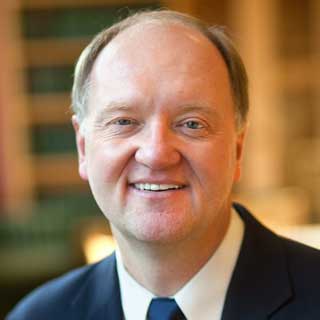Johnson Professor Andrew Karolyi Selected as One of the World’s Most Influential Scientific Minds: 2014
02/25/2015
Karolyi recognized by Thomson Reuters for his frequently cited research on global equity issuance and trading

Thomson Reuters has recognized Johnson finance professor Andrew Karolyi as one of the world’s most influential scientific minds in business and economics. Karolyi is Alumni Professor of Asset Management, and an internationally-known scholar in the area of investment management, with a specialization in the study of international financial markets.
Thomson Reuters created its list of most influential minds by analyzing data from its Web of Science and InCites platforms to determine which researchers have produced the work that is most frequently acknowledged by peers. The firm identified 3,200 individuals, who published the greatest number of highly cited papers in 21 broad fields, between 2002 and 2012. Highly cited papers are those that rank in the top 1 percent by citations for their field and year of publication.
Recognition by peers—in the form of citations—indicates that a body of work is meaningful to the scientific community. In citing, fellow scientists give credit to peers and their work.
The work that landed Karolyi and his co-authors on the list is represented by a series of papers that shed light on how companies from around the world have sought to raise capital in overseas markets. Earlier work by other researchers suggested a number of reasons why a firm in an emerging economy would list its shares on an overseas exchange, such as the New York Stock Exchange or the London Stock Exchange. Some thought reason was to broaden a firm’s investor base, or to have shares traded in a more liquid market, or to overcome barriers to raising capital in a firm’s home country.
Karolyi and his co-authors (Craig Doidge and Rene Stulz) offered new motivation for entering an overseas stock market, one related to improved corporate governance.
“We argue that these firms are signaling to investors that they are well governed, by their willingness to be part of a global offering or an overseas listing,” Karolyi says. “Choosing to put themselves in a highly monitored, tough regulation environment signals to the world that they are better governed firms, willing to accept the pressures that come with it.”
The researchers call this the “bonding theory,” as companies that are willing to offer their shares on a market, such as those in the U.S., are bonding themselves to higher standards of corporate of governance. The result: many positive consequences. Karolyi’s research indicates that these firms experience a valuation boost of 20 percent to 25 percent. They are able to raise capital on much better terms that those firms that choose to stay only at home, and they typically enjoy more analyst coverage and more accurate coverage.
The “bonding theory” drew a number of detractors, who challenged the theory in opinion and research. This stoked the debate, and drove Karolyi and his co-authors to produce more positive evidence for the bonding hypothesis. The resulting series of published papers fueled discussion and debate during the decade included in the Thomson Reuters report.
Karolyi’s research continues to influence public policy. It has been embraced by firms and institutions, whose business models are built on global equity listing and trading. As a result, major changes in the U.S. have made it easier for firms from around the world to trade here, especially for those that come from emerging economies with more fragile institutions and less vibrant markets, Karolyi says.
He adds that the research team is actively continuing their research program studying the global landscape for new listings, initial public offerings, delistings, and the evolving public equity universe.
